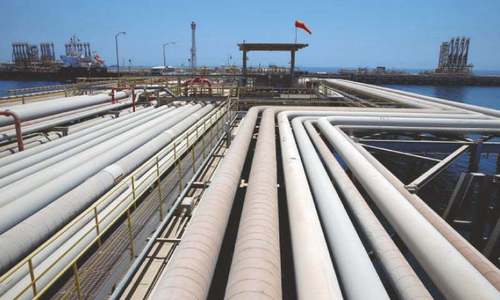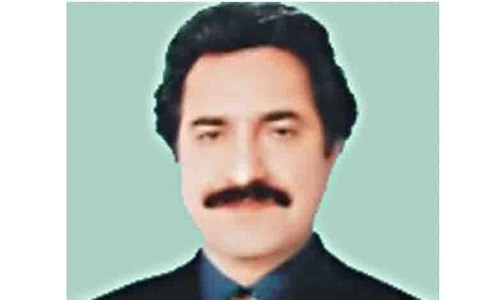ISLAMABAD: The government has decided to shift the headquarters of erstwhile Pakistan Electric Power Company (Pepco) from Lahore to Islamabad with a new nomenclature and fresh roles, but rejected the power division’s request to allow an 88 paisa per unit rise in tariff to meet an annual expenditure of Rs880 million.
These decisions were taken at a meeting of the Cabinet Committee on Energy (CCoE) last week, presided over by Planning Minister Asad Umar. The meeting, however, directed that the new and restructured company — Power Planning and Monitoring Company (PPMC) — should continue to charge a fee to Distribution Companies (Discos), Generation Companies (Gencos) and the National Transmission and Dispatch Company (NTDC), like Pepco has been charging.
Pepco was created in 1998 following the approval of a strategic plan for restructuring of the Water and Power Development Authority (Wapda) by the Council of Common Interests (CCI) in 1993. The plan had envisaged water sector responsibilities under Wapda and the separation of power sector activities from Wapda and transfer to Pepco to operationalise 10 Discos, three Gencos and the NTDC. Pepco was entrusted through an executive order in October 1998 to facilitate the transition from a centralised control over the power sector supply chain to autonomous and independent entities.
Rejects request to allow 88 paisa per unit impact on tariff
Later, the federal cabinet in October 2011 decided to dissolve Pepco and create a new entity — Central Power Purchase Agency (CPPA) — as its successor, along with teams of professionals and board of directors of corporate entities to ensure 100 per cent recovery of monthly bills. Ironically, many of the targets remained unfulfilled even though the CPPA was operationalised in 2015. The CPPA’s functions remained limited to power procurement on behalf of Discos and Karachi Electric and facilitation of the power market transition from the current single buyer to a competitive market.
The other functions of Pepco could not be transferred to the CPPA because these were beyond the mandate of the latter. Pepco, therefore, continued its role as a central entity to assist the power division in providing support to Discos and allied functions. The CCoE was informed last week that “since federal cabinet’s decision of October 12, 2011, had neither been implemented nor revised or modified, the authority of Pepco started diluting and the role of holding performance review meetings and monitoring of Discos, Gencos and the NTDC was assumed” by erstwhile ministry of water and power, now merged in ministry of energy.
The CCoE had also considered the power division’s summary in March 2018 for “effective management of Power Distribution Sector — Restructuring of Pepco and “directed power division to analyse and assess the existing role of Pepco keeping in view its given mandate and performance as well as its continuity in future setup”. The cabinet orders also required the power division to examine whether role of Pepco can be strengthened in the proposed restructuring plan of the power division for effective monitoring of Discos to ensure minimum losses.
The power division told the CCoE last week that the existing dynamics of power sector and experiences from the previous sectoral policies had established the need for dedicated institutional capacity for providing support to the power division in development of policies, strategic plans, frameworks, cross-sectoral and cross-value chain integration, strategic support to sectoral entities and monitoring and reporting on strategic initiatives.
In the meantime, as required under section 14A of the Nepra Act, National Electricity Policy, 2021, was approved by the CCI on June 25. Section 14A(4) of the Act envisages development of National Electricity Plan (NE Plan) in pursuance of the National Electricity Policy, which shall be a rolling five-year strategic plan with 15 years perspective.
The development and monitoring implementation of the plan requires dedicated institutional capacity, the power division advocated, adding that the policy also provided that “Ministry of Energy (Power Division) shall be responsible, among other matters, for monitoring the implementation of the National Electricity Policy and National Electricity Plan (section 6.2.1).” The policy further provided that the ministry of energy (power division) to designate an entity to perform monitoring tasks.
The CCoE was informed last week that “since the federal cabinet’s decision of October 12, 2011, had neither been implemented nor revised or modified, the authority of Pepco started diluting and the role of holding performance review meetings and monitoring of Discos, Gencos and the NTDC was assumed” by erstwhile ministry of water and power, now merged in ministry of energy.
On the recommendations of the power division, the CCoE, therefore, decided to change the nomenclature of Pepco to Power Planning and Monitoring Company (PPMC) and to shift its headquarters to Islamabad from Lahore. It was reported that all human resource functions of Pepco in respect of Discos had already been delegated to the respective companies. Accordingly, the objective clause of the Memorandum of Association could be changed.
The CCoE also decided that an approved draft of planning and monitoring agreements should be signed between the PPMC and the power sector entities to perform its functions.
The PPMC would be given a sovereign mandate to approach international lending agencies through the Economic Affairs Division to secure support for capacity building, consultancy, tools and infrastructure to effectively operationalise the core functions.
The CCoE was told that Pepco’s board of directors had already approved a transition plan which had to be implemented by December 31, including hiring of fresh human resource.
Published in Dawn, October 11th, 2021














































